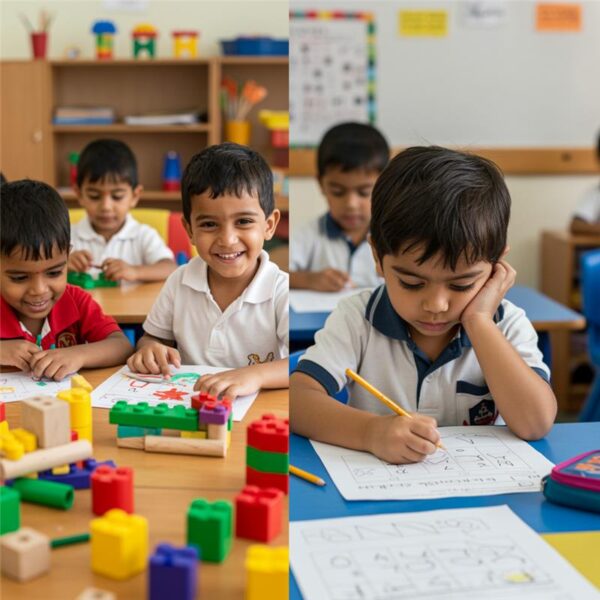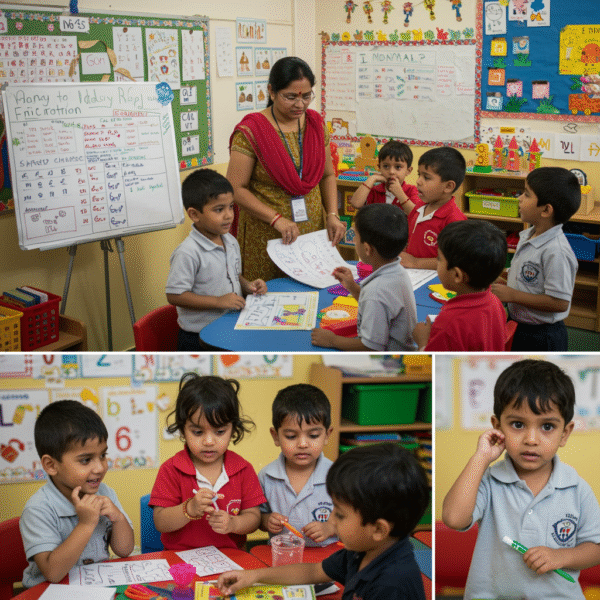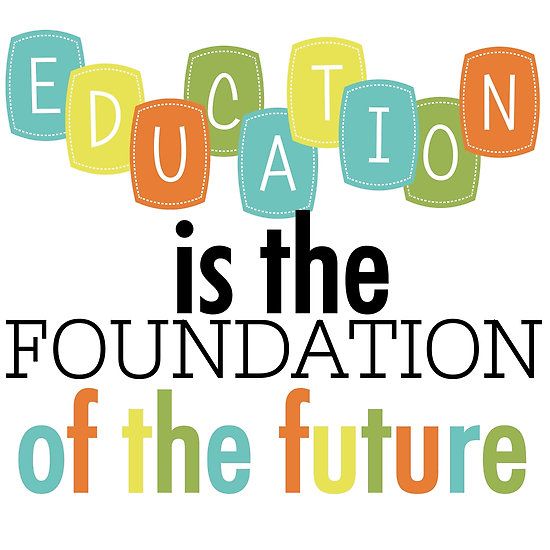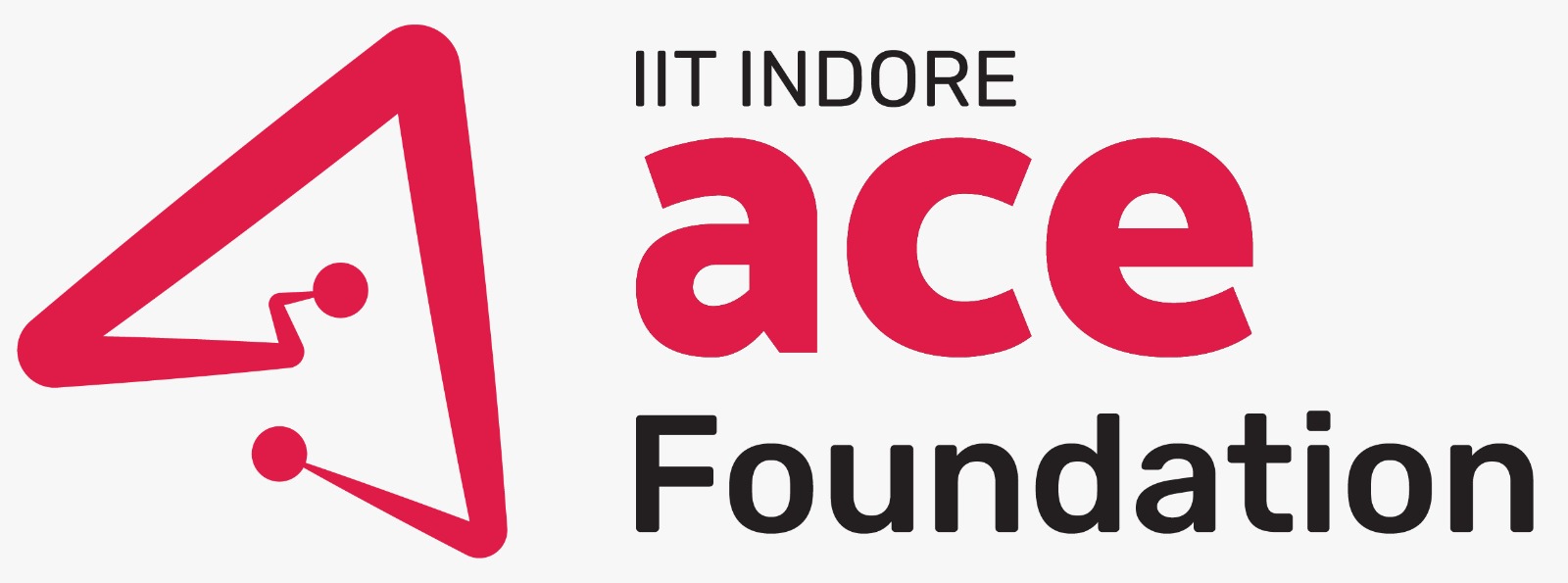Introduction
Earlier, pre-primary classrooms were full of play, stories, singing, building blocks, and imagination. Children learned by exploring, asking questions, and trying things out with their hands. The focus was on how they grow, not how much they remember.
Now, many schools expect young children to trace letters, sit quietly, follow strict routines, and complete academic tasks. The learning has become more about performance than discovery.
This shift may look like progress, but it has led to two big mistakes that many schools still make in their early years curriculum. And those mistakes could be affecting how well children actually learn and grow.

Mistake 1: Starting Academics Too Early
One of the biggest curriculum errors in pre-primary education is focusing on academics before a child is developmentally ready.
Many schools believe that the earlier a child learns to read or solve math problems, the better. This thinking pushes pre-primary classrooms to introduce academic lessons too soon. Children are given worksheets, flashcards, and writing tasks before their brains are ready for that kind of learning.
But young children do not learn like older students. At this stage, their brains are built for play, movement, and hands-on experiences. When we rush into academics, we take away time from the kind of learning that builds focus, curiosity, and confidence.
Why this matters:
The early years are not just about learning letters or numbers. They are about helping children become ready to learn. When the focus is only on academics, schools often miss the chance to build important life skills like communication, emotional strength, and social awareness.
Mistake 2: Making the Curriculum Too Heavy

Another common mistake in early years education is trying to fit too much into the curriculum. Some schools create long lists of subjects, learning outcomes, and daily tasks, thinking this will make the program stronger. In reality, it leaves little room for imagination, creativity, or child-led exploration.
Children in the early years need space to wonder, ask questions, and make choices. But when every minute is planned and filled with adult-led activities, they lose the chance to explore and discover on their own.
Many schools also focus only on what can be measured. They track how many letters a child knows or how well they can write their name. But what about things like sharing, solving problems, or being excited to learn something new? These skills matter just as much, even if they are harder to measure.
What schools can do instead:
· Allow children time for open-ended play and exploration
· Make space for art, music, movement, and storytelling
· Follow the child’s interests when planning activities
· Focus on how children feel and interact, not just what they can write or recite
Rethinking What Success Looks Like

In the early years, success is not about how early a child can read or write. It is about how confident they feel, how curious they are, and how well they can connect with the world around them.
When we treat four-year-olds like they are already in primary school, we take away the chance to build the skills that matter most. Many schools make the mistake of pushing academics too early or filling the curriculum with too much, without considering how young children actually learn.
Early education should be simple, joyful, and meaningful. It should help children grow at their own pace, with enough space to imagine, explore, and express themselves. When the focus is on the child, everything else starts to fall into place.
Let’s give children a beginning that helps them grow, not just perform.
Because a strong start builds a strong future.




